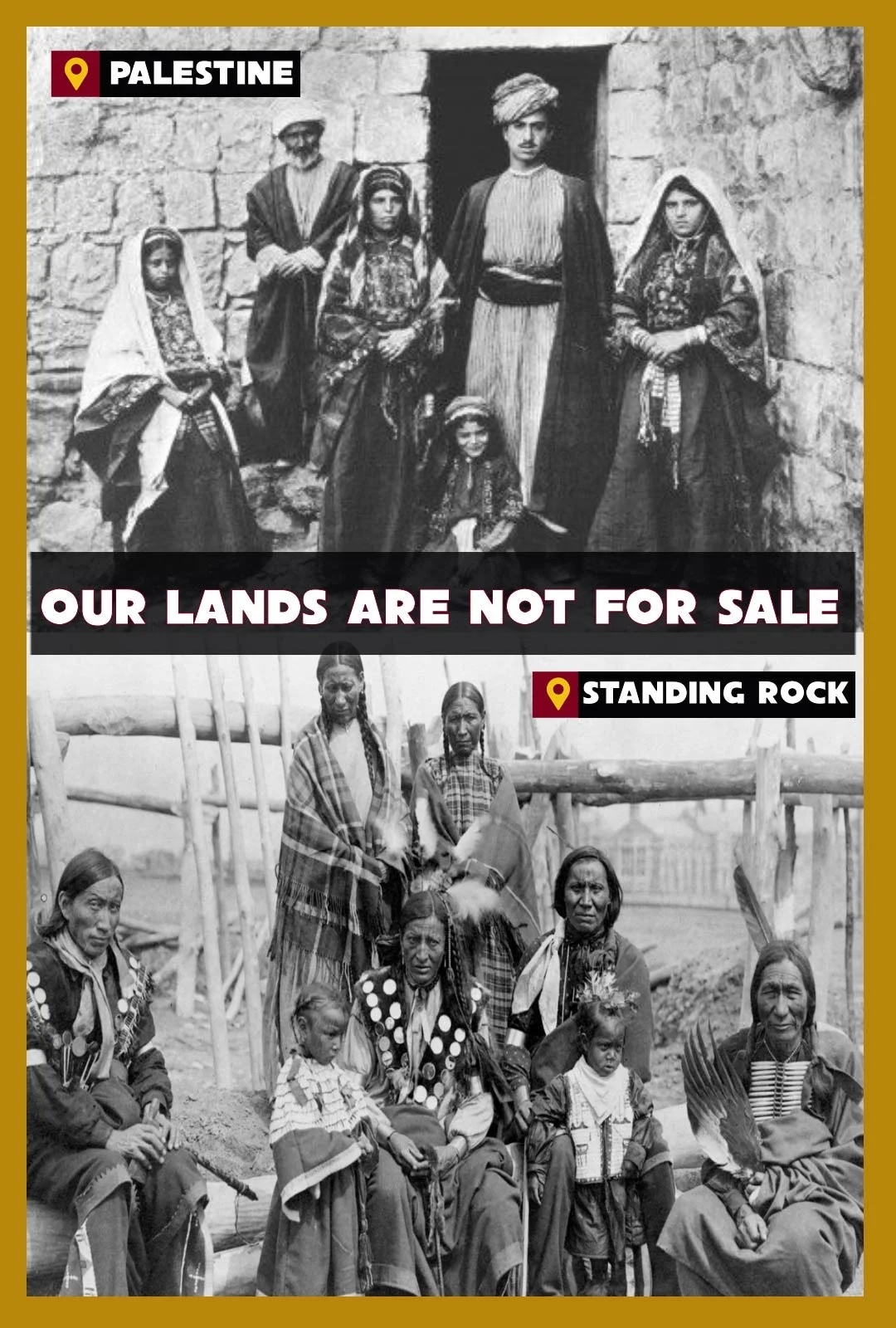From Standing Rock to Palestine: Our Lands are not for Sale
Dear Supporter,
This weekend, the Trump administration unveiled its plan for Palestine and Israel, known as “The Deal of the Century". Predictably, the plan offers uncritical support for Israel, and most noticeably, does not mention Israel’s military occupation and oppression of the Palestinian people. Instead it focuses on building a Palestinian economy through financial assistance. Palestinians have uniformly rejected this deal as a bribe to forgo their claims to sovereignty, return and the land. The Trump plan is not new. In fact, it echoes the logic that formed the basis of the Oslo Accords, and, going back further, mirrors the tactics that have been used for centuries by colonizing forces.
In the United States for example, the Treaty of Fort Laramie 1868 was the underlying foundation of a 1980 Supreme Court case, United States v. Sioux Nation of Indians, in which the court ruled that tribal lands covered under the treaty had been illegally annexed by the US government, and the tribe was owed payment for the land plus interest. As of today, this payment, held in escrow, is worth more than $1.3 billion. The Sioux have refused to accept the money, demanding instead the return of their land.
Palestinians today reject the Trump Plan and the Bahrain economic workshop as part of a long history of indigenous struggle to stay on the land.
Both the United States and Israel use legal regimes to deny the rights of indigenous peoples. The parallel mechanisms employed by these regimes, and the shared experiences of the Native communities of Turtle Island (the term native peoples use to refer to North America) and Palestine have connected the indigenous movements for justice, sovereignty, and survival in both contexts.
Our principled struggle against Israeli colonization requires that we Palestinians living in the United States and our allies recognize our complicity in U.S. settler colonialism. The Palestine solidarity movement in the United States must strive to advocate for Palestinians rights in an analysis rooted in an understanding of the continuing settler colonial project here.
nialism. The Palestine solidarity movement in the United States must strive to advocate for Palestinians rights in an analysis rooted in an understanding of the continuing settler colonial project here.
We invite you to explore indigenous history, presence and resistance through these resources:
Whose Land Am I On is an interactive map identifying the lands of native peoples.
The Red Nation is coalition of Native and non-Native activists, educators, students, and community organizers advocating Native liberation.
Our History Is the Future: Standing Rock Versus the Dakota Access Pipeline, and the Long Tradition of Indigenous Resistance (Verso 2019), by Nick Estes, traces traditions of Indigenous resistance that led to the #NoDAPL movement.
Water Protectors Legal Collective provides legal support, advocacy, and knowledge sharing for Indigenous centered and guided environmental and climate justice movement.
Freedom Bound: Resisting Zionism & White Supremacy - From Turtle Island to Palestine
From Standing Rock to Palestine, we remain steadfast and affirm that our lands are not for sale.
In solidarity and with love,
Sandra


